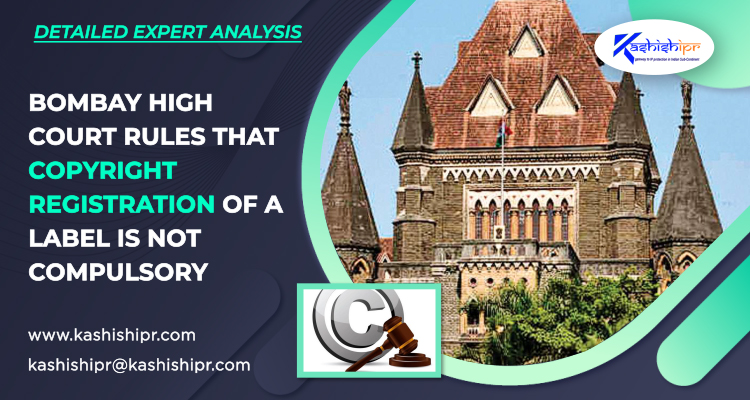
Overview
The two parties involved include Sanjay Soya Private Limited (SSPL) and Narayani Trading Company (NTC). Both of them specialize in refined edible oil products. The dispute between the two arose concerning the use of packaging in their respective products. The plaintiff, SSPL, had filed a lawsuit against the defendant NTC in the Bombay High Court, alleging Copyright and Trademark Infringement. According to the plaintiff, the defendant used a similar trade dress and labeling for its soya bean oil products.

Plaintiff’s Arguments
- SSPL was incorporated in 2004. It is also the successor of SK Oil Industries.
- For quite a long period now, it has been specializing in manufacturing and selling edible oils, which also includes soya bean oil.
- The label in question was designed by an employee of SK Oil Industries. Under Section 2(c) of The Copyright Act of 1957, the label is an original artistic work. When SSPL was incorporated in 2004, SK Oil Industries had assigned it the label’s copyright.
- In May 2007, the label mark ‘SOYA DROP’ was registered. Since then, it has been continuously used and has even acquired reputation and goodwill in the market.
- It was in October 2020 when SSPL came to know about NTC’s use of a similar label and trade dress for its set of soya bean edible oil products. The confusion was bound to arise as the marks were both conceptually and visually similar. Also, their use was concerning identical goods.
- According to SSPL, this practice was dishonest as it could make NTC benefit from the reputation and goodwill of SSPL’s brand name.
Defendant’s Response
- As per NTC’s statement, both SSPL and SK Oil Industries couldn’t claim copyright in the artistic work. It also mentioned that their copyright assignment wasn’t valid.
- According to NTC, the SSPL label mark was only a registered trademark, and therefore, it couldn’t be used as an artistic work. It further added that an individual could either own a registered trademark or copyright but not both.
- NTC even referred to the Bombay High Court’s judgment in Dhiraj Dharamdas Dewani vs. Sonal Info Systems Pvt Ltd, where it held that Copyright Registration is compulsory to maintain a civil or criminal action under the Copyright Act of 1957.
Bombay High Court’s Decision
- NTC’s statement regarding the copyright assignment from SK Oil Industries to SSPL wasn’t appropriate as it wasn’t a party in the contract, and therefore, didn’t have the right to question it.
- NTC didn’t own the copyright in the ‘SOYA DROP’ artwork or label.
- The argument that copyright protection and trademark registration were two different things and lacked connection and that an individual or entity couldn’t own both was wholly incorrect. As a matter of fact, SSPL’s label is registered under The Trademarks Act of 1999, and the artistic work in the label very much receives Copyright Protection.
- NTC failed to prove that it had used the artwork or label first or that SSPL’s artwork wasn’t original.
- The judgment on which NTC had relied upon to prove that Copyright Registration is compulsory to maintain a criminal or civil action under the Copyright Act wasn’t sustainable. The Bombay High Court also mentioned that many other courts, which also include the Supreme Court, have held quite a lot of times that copyright registration isn’t compulsory.
- The rights granted in general under the Trademarks Act of 1999 and the Copyright Act of 1957 are completely different. The ones applicable to the case are as follows:
- The exclusive right to sue an individual or entity for infringement is only available to a registered trademark owner under the Trademarks Act. No such requirement is mentioned in the Copyright Act.
- The Copyright Act extends a wide range of rights to the first copyright owner without requiring prior copyright registration.
- Under the Copyright Act, no author can claim rights in the original creative work of some other author. On the other hand, the Trademark Law allows two or more registered owners or concurrent users of similar marks.
Concluding Remarks
The Bombay High Court concluded by saying that NTC can’t claim to be the first owner of the artistic work in question and also can’t point to any individual or entity who or that may have used the label before SSPL or SK Oil Industries. Additionally, it mentioned that nobody could distinguish between the two labels as NTC had adopted a confusingly similar label and copied the artistic work comprised in SSPL’s packaging and trade dress. Keeping all these aspects in mind, the Court ruled in favor of SSPL. ✅ For more visit: https://www.kashishipr.com/
No comments:
Post a Comment